Enver Creek Secondary 24-25
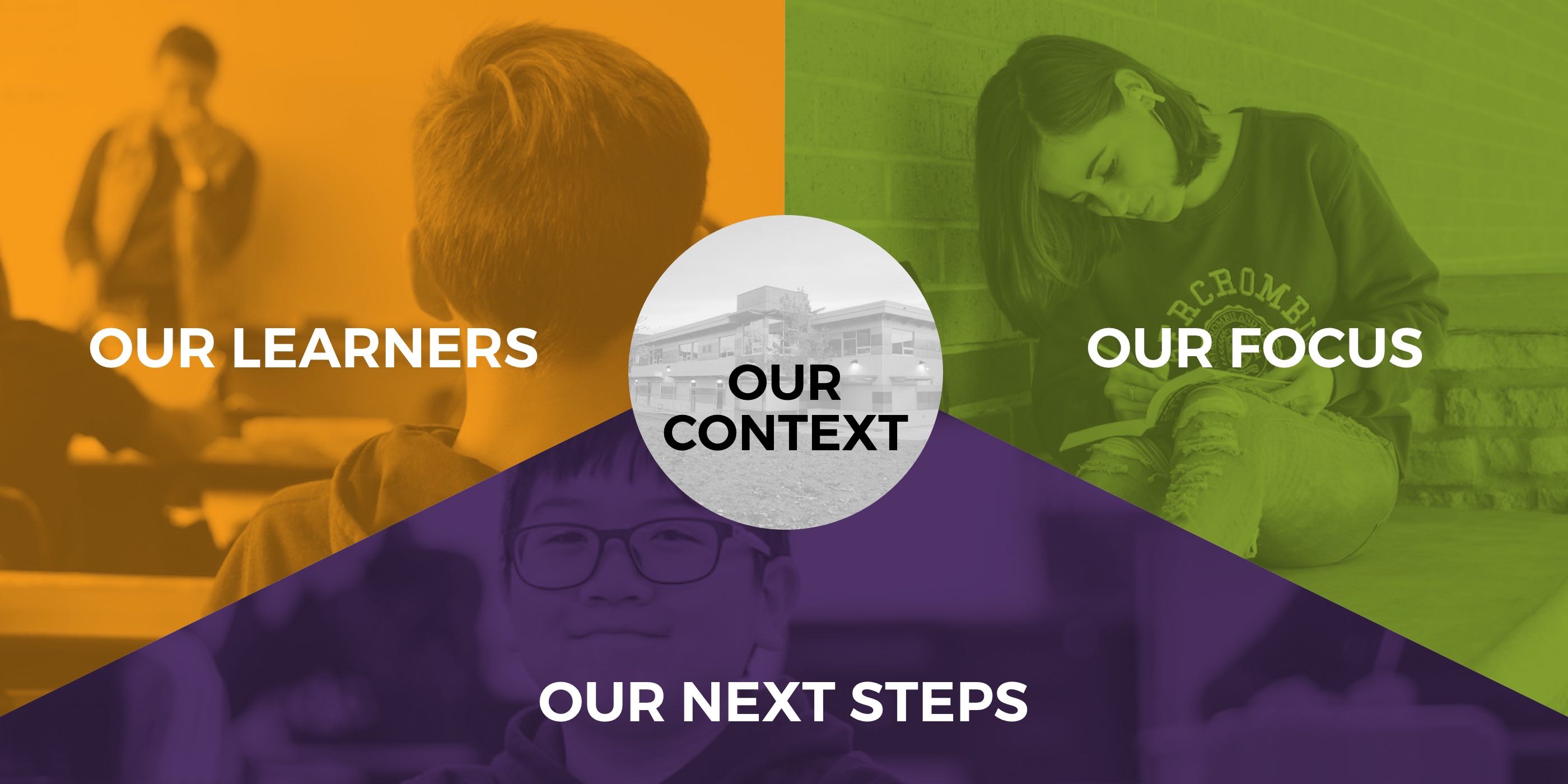

OUR CONTEXT
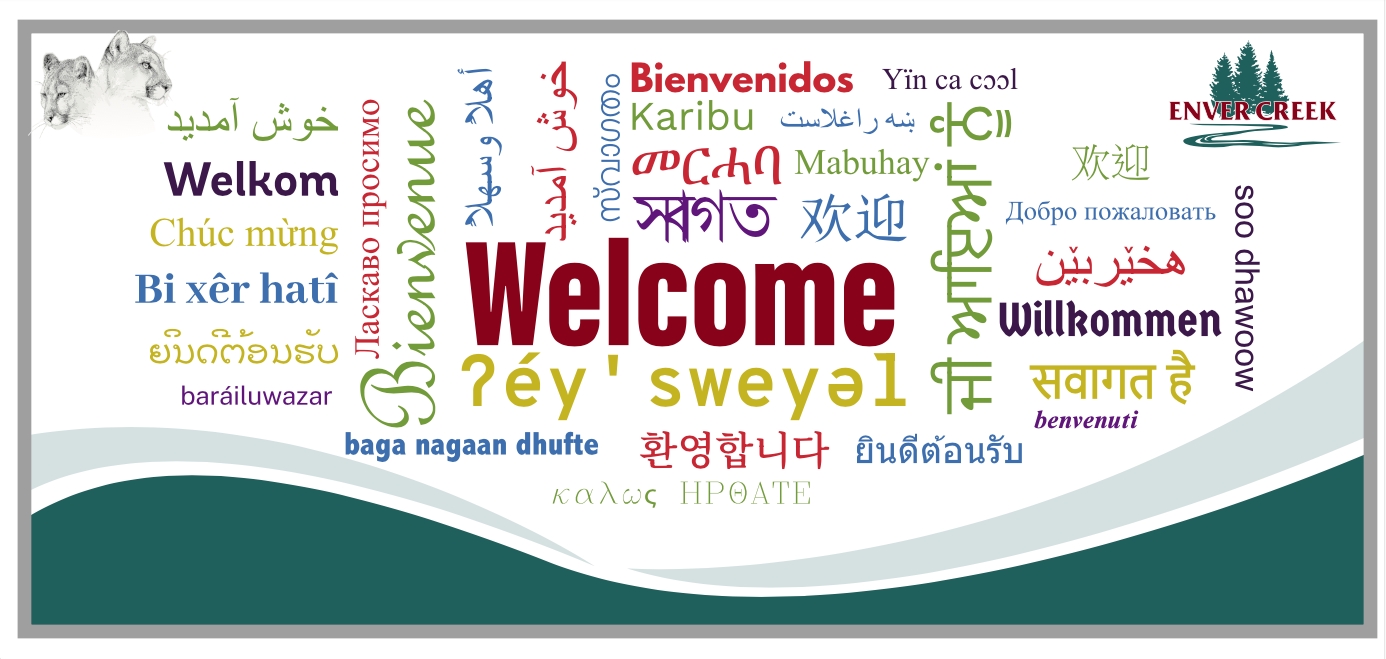
Enver Creek Secondary School is a vibrant and inclusive community, home to students of diverse backgrounds, abilities, and interests. The school fosters a strong sense of community and tradition, with Cougar "PRIDE" deeply embedded in its culture. Enver Creek students are caring, helpful, and motivated to succeed—not only for themselves but also for the greater good of the community.
Students thrive when they are supported, given meaningful opportunities to learn and grow, and treated with respect. In turn, they extend these same values to others. When students feel seen and valued, their dedication to the school and broader community becomes both visible and impactful.
At Enver Creek, students are actively engaged in their learning and strive for excellence in all its forms. They embrace and celebrate the diversity of their peers, contributing to a welcoming, respectful, and inclusive environment where everyone feels they belong.
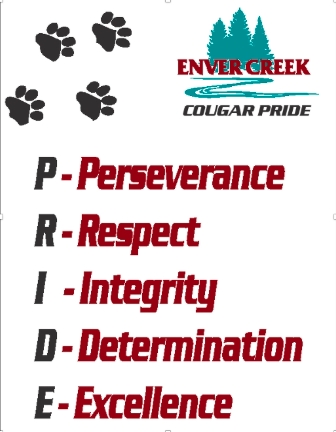
OUR LEARNERS
Students at Enver Creek form a richly diverse community of learners. This diversity—reflected in the wide range of ethnic and cultural backgrounds—includes students from households where 82% speak a language other than English. These varied identities, shaped by ethnicity, nationality, language, abilities, and religious or spiritual beliefs, are an integral part of who our students are.
At Enver Creek, we are intentional about creating space to explore these aspects of identity. We encourage students to reflect on who they are, how they relate to others, and how they connect to the broader community. This ongoing exploration fosters deeper understanding, empathy, and a strong sense of belonging within our school.
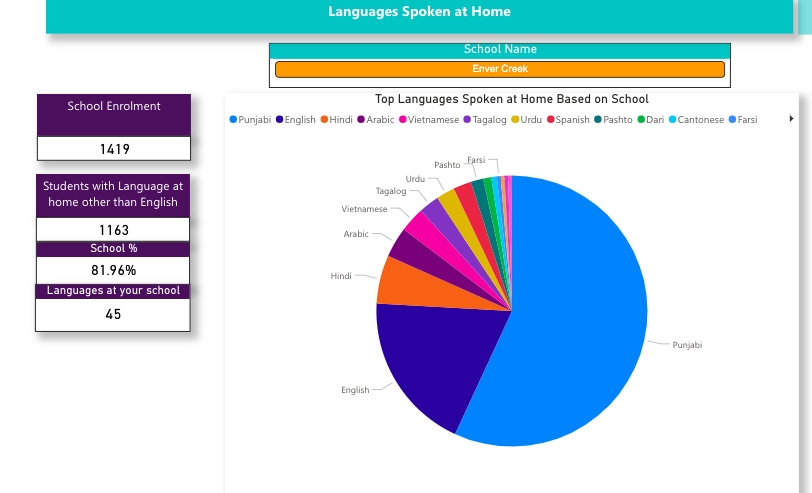
At Enver Creek, students actively share their cultural and racial equity celebrations to foster understanding, build meaningful relationships, and strengthen community connections. Throughout the year, students demonstrate social awareness by participating in a variety of ethnically diverse events and initiatives organized by classroom teachers, student-led clubs such as the Multicultural Club, Student Council, Outreach Charities Club, and other school advocates.
Celebrations such as Diwali and Vaisakhi offer opportunities for students to honour their South Asian heritage and raise awareness within the broader school community. Our lunchtime cultural events continue to grow, strengthening a sense of belonging. In February, students led a school-wide Black History Month celebration that featured cultural dance, food tastings, and educational displays, highlighting the richness of Black culture and history.
Students also engaged in activities that deepened our connection with the Indigenous community and supported the journey toward Truth and Reconciliation.
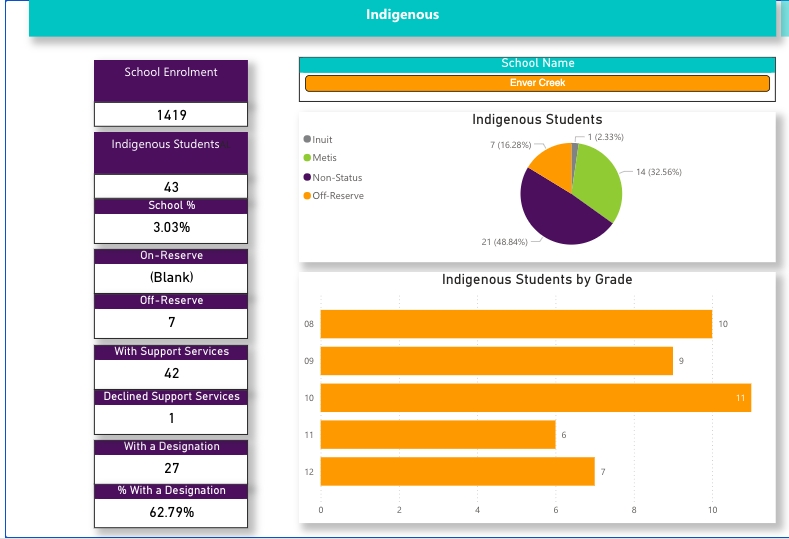
Enver Creek students took part in numerous district and school events designed to elevate Indigenous student voice. Students from Grades 9–12 represented our school on the District Indigenous Leadership Council, helping to create more inclusive spaces. Monthly meetings with our Indigenous Graduation Advocate, Indigenous Youth Care Worker, and school administrators provided opportunities for dialogue, celebration, and problem-solving. Each session focused on a unique theme or activity, such as beading, cedar flower making, and brainstorming school improvements, all contributing to a stronger, more connected school community.
OUR FOCUS
This year, Enver Creek focused on three key goals aligned with District priorities and staff input:
Social and Emotional Learning (SEL)
Building on last year’s work, we continued helping students develop empathy, respect, and a sense of belonging. This included racial equity education, deeper engagement with the First Peoples Principles of Learning, and more opportunities for Indigenous cultural learning.
Some examples of focus include:
- Giving back to our school and community
- Service
- P.R.I.D.E. (Perserverance, Respect, Integrity, Determination, Excellence)
- Empathy, Kindness, Respect for Others, Sense of Belonging
- Social responsibility, global citizens
- Inclusion (Neurodiverse, Indigenous, ELL, designated students, students in care)
- Racial Equity Presentations and video
- Transitions between grades and from grade 7-8 specifically
- Deeper engagement with the First Peoples Principles of Learning, and more opportunities for Indigenous cultural learning.
Support for Literacy
We prioritized strengthening literacy skills, including additional support for English Language Learners.
Some examples of focus include:
- Learning new ways to support our ELL students
- Book Clubs/Diverse learning materials in our library
- Conversation Cafes at lunch
- Recipe Literacy in Home Economics
- Consistent phonics for ELL students
Integration of Technology
We are teaching students to use AI tools ethically and responsibly to enrich their learning and prepare them for the future.
Some examples of focus include:
- Using AI idea generation, writing structure, grammar refinement, identifying bias, accuracy, etc.
- Music composition tools to explore rhythm, melody, tone, etc.
- AI image generators to help students visualize creative concepts.
- Translation tools to help ELL students access vocabulary.
- AI coding assistants to help students understand code structure.
Throughout the year, we used Core Competency reflections to help students consider the specific traits connected to our school goals. Students assessed whether these traits were personal strengths, areas for growth, or neither. Teachers then embedded targeted strategies to support students in developing greater empathy, social responsibility, and respect for others. Grade 8 students specifically, saw growth in two of the three traits.

In our Humanities 8 classes, we continued to prioritize Social and Emotional Learning by creating safe, collaborative environments where students felt comfortable sharing ideas and exploring different perspectives. Each week, students engaged in discussions of current events and gradually became more confident and thoughtful in their analyses.
We also continued to embed Racial Equity into the Humanities 8 curriculum and introduced new lessons within our Arts program. These sessions included activities exploring identity, privilege, and power, and provided opportunities for older students to share their personal experiences. This work has helped foster empathy, understanding, and a stronger sense of student voice.
Beyond the classroom, older students collaborated to record a video capturing their diverse perspectives and visited Humanities classes to share their experiences in person. These resources will continue to support this important learning in the future.
Overall, we are proud of the progress our students made in developing strong academic skills, using technology ethically, and deepening their respect for diverse perspectives. We look forward to building on this work in the coming year.
OUR NEXT STEPS
Moving forward, we will continue to collect data to track progress, refine our strategies, and ensure students are developing strong communication habits. Ongoing assessment and reflection will help us identify which approaches are most effective and where additional support may be needed.
By deepening our understanding of how students engage with different perspectives and express their ideas, we can tailor our instruction to better meet their needs. This includes providing more opportunities for guided discussions, targeted skill-building activities, and structured reflection to help students grow as thoughtful, respectful communicators.
In the year ahead, we also plan to expand opportunities for cross-grade mentorship, where older students can share their experiences and model inclusive dialogue for younger peers. Additionally, we will continue to integrate Social and Emotional Learning and Racial Equity into more subject areas, reinforcing these skills across the curriculum.
Ultimately, our goal is to help all students become active, engaged participants in collaborative discussions, fostering a more inclusive, empathetic, and reflective learning environment.
